Election Fallout: Community Response
Clarion photo Ashley Lytle
A pall hung over a grey Portland skyline on the morning of Nov. 9. Nothing had changed, and yet everything had changed. If you had taken a walk, you might have noticed the same people walking the streets, or the same shops opening their doors for business. But if you looked closer, you might have seen something deeper, such as the downcast stares, the rare sad smile, or the steps taken with grim determination. No, it wasn’t the world that had changed – like it or not, it was the people and their future.
Portland is often considered a city in the vanguard of liberal ideology, a metropolitan bubble of democratic thought. Thus, this lingering communal despair was quick to splinter into multiple different emotions, each in turn manifesting into separate coping methods. Some felt afraid or angry, others felt wronged, and still others felt an overwhelming sense of powerlessness. For the past month, our school has been witness to this massive uproar from all facets of our communities, from our neighbors and our family, to our peers and our teachers.
As the election took place over parent-teacher conferences, students would only hear from their peers through social media. However, despite the lack of face-to-face conversations, many were able to express their thoughts elegantly and passionately. In addition to words, Cleveland students also met the election results with action. Within 24 hours, there were student protesters downtown chanting phrases such as “Not my President” and “Love trumps hate.” Many of the events were organized through media platforms such as Facebook. As the week continued, more marches and protests like this grew and consolidated until participants were in the thousands.
There were many reasons as to why students protested, from contesting the validity of the results to standing in solidarity with peers. Regardless, it is without question that these protests highlighted our student body’s frustration and foreshadowed what was to come when the school week rolled around. Indeed, long before Monday, students were organizing walkouts. Although they were quick to be unsanctioned by the administration in the pursuit of safety, some students still participated.
Despite the administration’s lack of support for the walkout, there were unmistakable measures in response of the election. The special schedule on Monday was the first of these, allowing for the first 15 minutes of second period to be set aside for a class discussion about recent events. Students were given the prompts “On election night,” and “Make America great again” and asked to write down some thoughts. The writings students created were shared to the rest of the class, and for many it provided a perfect opportunity to express the cacophony of emotions that they had been unable to talk about throughout the previous week. Although this election discussion was rewarding for some, others found more stress than relief. Although many administrators were clear that the aim was not to debate, like any political discussion, there was a chance for it to quickly turn into a heated dispute.
In addition to the special schedule on the Monday following the election, if students watched the daily bulletin powerpoint they would have been greeted by an unusual assortment of posters and quotes on acceptance. These sentiments were mirrored the following day when the Leadership class began to hang posters on the wall outside of the office. The posters were bright, colorful, and filled with welcoming words of encouragement. Vice Principal Julie Rierson said, “We as an administrative team felt very strongly that we cancel our staff meeting, because we wanted an opportunity for staff and students to come together to create posters – messages of Cleveland’s inclusive environment. It was important that we created a safe community here for students.” It was these posters that would allow many to feel more secure.
Teachers have increased their efforts to help students feel safe. Coming together to show how they stand with minorities, staff created shirts that read “Black Lives Matter.” These were a powerful statement as most of the teachers wore the shirts to conferences and to school the following week. Maggie Appel, one of the two organizers, Claire Millon being her counterpart, said, “There is a school district in Seattle that organized a day where they all wore Black Lives Matter shirts and wanted to send the message that black lives matter at school and in other places, to all places essentially. We wanted to do our own version of that and initially we just presented it to the English Department, but then some other departments heard about it and we just spread the word… . I think that in the end that if students came to school that Monday after the election and saw that message, even if it made a couple students feel more safe, then I would say it was a success.”
The district as well as Cleveland has stepped forward. PPS named Thursday, Nov. 17 “Unity Day,” a period for which all could feel united and not be held apart by their race, gender, or sexual orientation. This was an opportunity for students and staff all across Portland to wear black and show their support.
Students also wore safety pins to show their support for minorities. Originally used during Brexit to distinguish individuals who would stand with those in poverty, the pins have again been adorned for a similar reason. “We wore them to show that we’re allies of minorities and LGBTQ+ and people who are going to suffer most from Trump,” junior Eva Morris acknowledged.
However, the safety pins did bring around controversy. She continued, “People thought that if you wear the pin, it means that you’re saying that you’re not of a minority, so you have a lot more privilege than those you say you’re allying with, but what I think is good is if we all realize our privilege and use it to help minorities. I think that’s more of what the safety pin stands for.” Despite the backlash, wearing black and participating in Unity Day was important to demonstrate how millennials are politically active and eager to take a stand on important issues.
In addition to the district, student leaders all across the Portland area created an association called the Portland Metro High School Youth Alliance. The organization was formed to “address emotions that were going through every school and how to combat them to make people more united,” according to Student Body Co-President Carlin MacMillan. The group specifies though their mission statement, “On Nov. 11, 2016, student leaders from Portland Metro area high schools gathered to ensure a safe, united and equitable culture and climate in our city. We, as the future of America and as engaged members of the community, call upon our educational institutions to provide a secure and tolerant learning environment. In order to achieve this, we must hold ourselves and each other accountable for our action. This is our voice. This is our future.” As more and more students have become involved, so have our teachers.
Throughout this election, current politics have become increasingly present within Cleveland classrooms. They are a dominant factor in the welcoming environment, dedicated to positivity and solidarity, that Cleveland portrays in the aftermath of Donald Trump’s election. As election conversation continues, as it has for the past year and a half, students wonder, should discussion surrounding current politics be sanctioned within school and be the focus of many teachers lesson plans?
Quinn Samouilidis, junior, said, “Discourse has become a bit one-dimensional. Everything is ‘Can I revert this back to Donald Trump,’ instead of thinking of a new political example. Even teachers do this when they talk about what happened in the news today. Well, the news isn’t only about our election. Let’s move past that, especially since we can’t even vote.” Because of Cleveland’s liberal attitude, the views of conservative students are stifled and an educational system fostered in diverse ideas is dismissed.
Around the country, in both conservative and liberal states, students found their classrooms continuously disrupted by recent political scandals, while teachers let election news and heated student debates override their lesson plans. “If we were split 50 to 50, Republicans and Democrats, classroom discussion would be more fulfilling. But, I don’t think we need an entire class period of poeple saying ‘I don’t like Donald Trump because x, y, z.’ It’s the same thing over and over again,” Samouilidis explained.
However, all students expressed differing opinions surrounding how teachers should broach current politics within their classrooms. For example, Mucai Muthubi, junior, said, “I think that there shouldn’t be politics in the classroom because it intensifies the lessons. We end up hanging onto our own perspectives instead of acknowledging others.” In contrast, Augie Lewis-Hoogerhuis explained, “Because this election is so polarized, and because Trump stands for such biased things, it’s not ok to not talk about politics in class or else we are all bystanders to the negative spread of his ideas.”
High school students around the United States shared their ideas pertaining to school sanctioned political discussion. For example, Izzy Pitman, a junior in Atlanta, Georgia said, “At Paideia, my school, it is so hard to be conservative. We are an elite bubble in metro Atlanta and our school is one of the bluest areas in Georgia. I want to hear people express their opinions openly and I think it can help my community better understand the chaos that went down in this election.” In agreement, Grady Dehler, a junior in Rapid City, South Dakota explained, “Personally, I think that it’s healthy to have politics in school, especially when people have different opinions, because school is about preparing you for society and politics are important in any society.”
This election hasn’t been politics as normal though. Current high school students have become exponentially more involved in political debate as they begin to fear their future. Is it ethical for all aspects of a student’s life to be centered around politics, as we have seen at Cleveland? Matt Sten, Cleveland social studies teacher, acknowledged a spike in political discussion within Cleveland classrooms and said, “Because Trump has crossed so many lines of decency and morality, he’s placed himself in a position to be critiqued not for his political beliefs, but for his moral actions, something that candidates in the two previous elections did not do.”
The Portland Public School District currently has no policy limiting the amount of political discussion involved in classrooms. Teachers, however, are encouraged to relate their lessons to current events in order to increase student engagement. Vanessa Hughes, digital media and theory of knowledge teacher, explained, “A lot of my focus in terms of creating content in my classroom and building curriculum is done with a bias of social justice because I believe that one of the byproducts of a democratic society and one that provides a free education for people is to create global-minded critical thinking individuals. And to do that, you have to bring in contemporary events, bring in current events, and politics is just one of them.”
But, how can classrooms maintain an unbiased environment when Cleveland is based in far left, inner southeast ideals? Sten explained, “Too often the teacher’s interpretation is embedded in the presentation. It’s up to the teacher to create a classroom environment that doesn’t alienate those with different political views.” Teachers aren’t held accountable for the political views they share within their classrooms and students are heavily biased due to their education, family, and the act of living in Portland. This causes students to question if Sten’s mindset is successfully executed throughout Cleveland staff’s lesson plans.
“I am sick of talking about the election in my class. Everyone has the same opinion. I find it very sad that it takes a presidential election for people to realize that yes, there are problems in our country. Everyone is talking about the problems we have nationwide, but they fail to recognize the same problems that are right in front of us,” stated Andy Ho, junior. Throughout the school year, as politics surrounding the president-elect continue to dominate classrooms, a subjective lens is essential for students and teachers in order to discern whether or not current politics are essential within the classrooms of a public school.
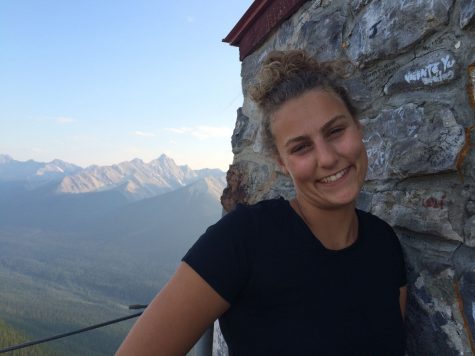
Position within Newspaper: Copy Editor
Graduation year: 2018
Favorite thing to do: Backpack, swim, and play cards
Favorite book: Under the Banner...
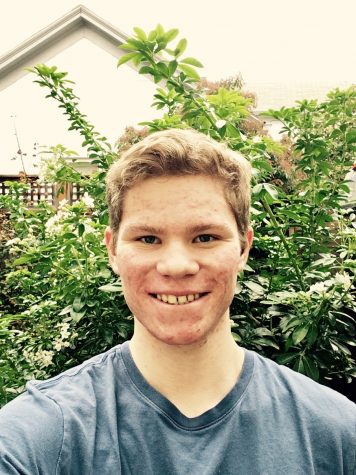
Graduation year: 2017
Favorite thing to do: Write
Favorite book: The Name of the Wind by Patrick Rothfus
Favorite movie: Dead Poets Society
Favorite...
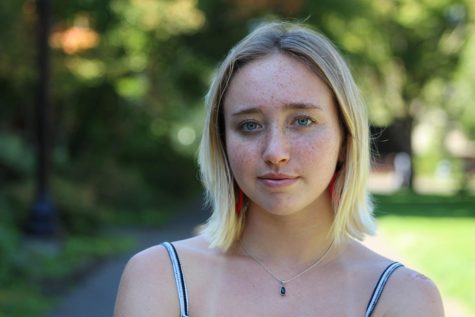
I'm Jennifer, and this is my third year as a reporter for the Clarion. I'm currently a senior at Cleveland, and I love writing news stories. My favorite...



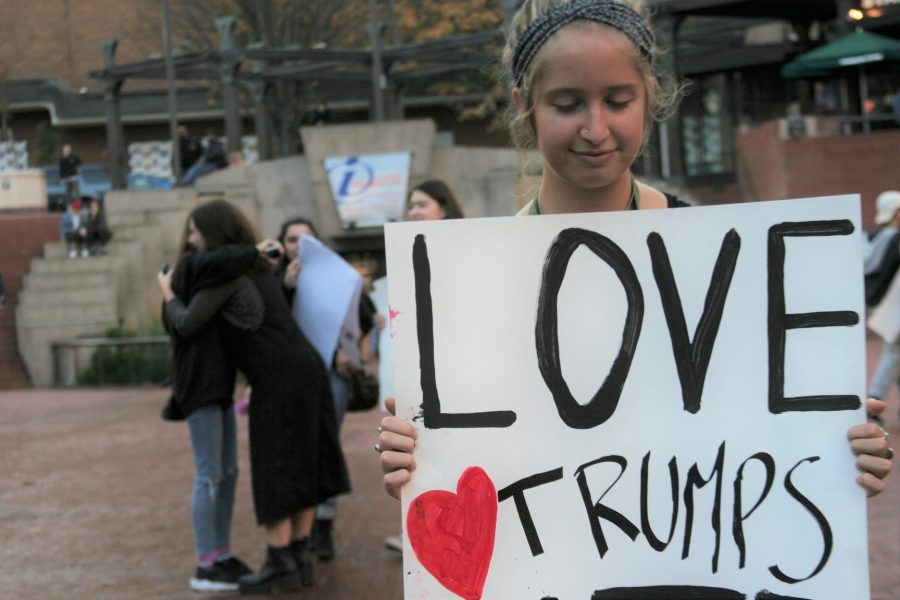
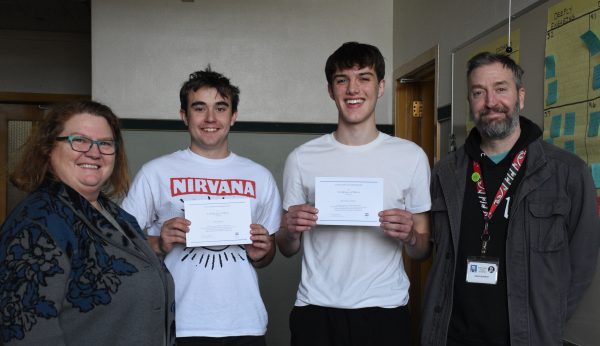
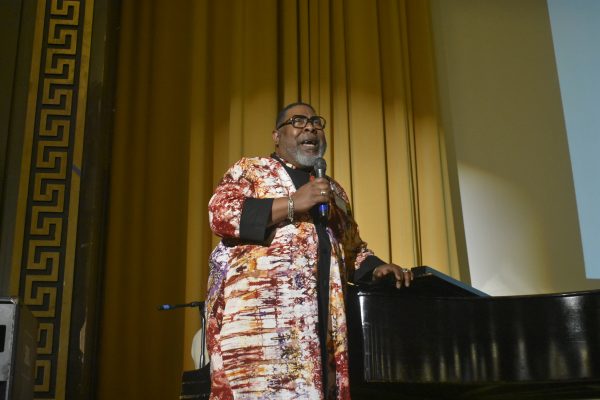
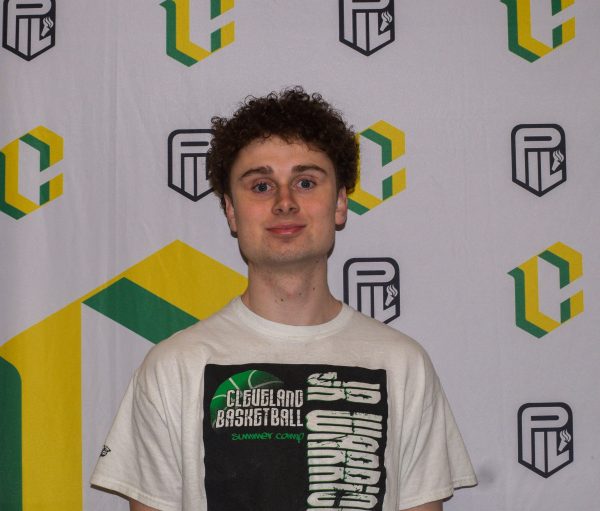
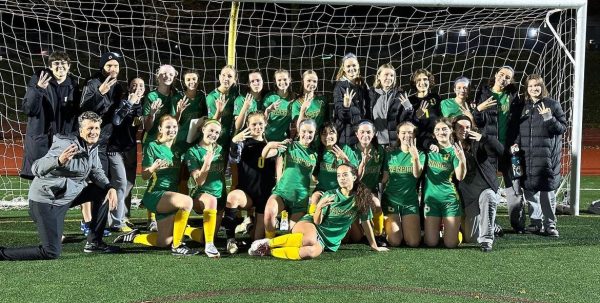
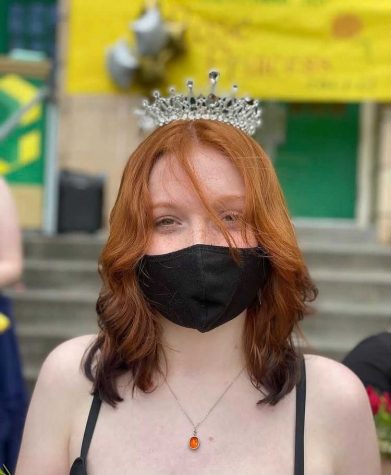
Betsy Toll • Jan 9, 2017 at 11:05 PM
I’m the mother of a Cleveland alum, and I want to congratulate you on a thorough and well-developed, well-written article. I also want to congratulate and honor the student body at Cleveland for being aware and engaged in political discourse at a level we haven’t seen in a long time.
No doubt about it: this a pivotal and extremely unstable time in our country’s history, no matter where you fall on the political spectrum. But that very instability shakes things up in ways that can provide openings for people like you — smart, committed, creative, energetic — to make a huge difference. It means that when you engage, this is a time when shifts can happen, and must happen. Creative hearts and bright minds, put to the task, actually can impact the future.
Keep it up, Warriors. We’re rooting for you, all of you. The future is yours, and the world is waiting for you!